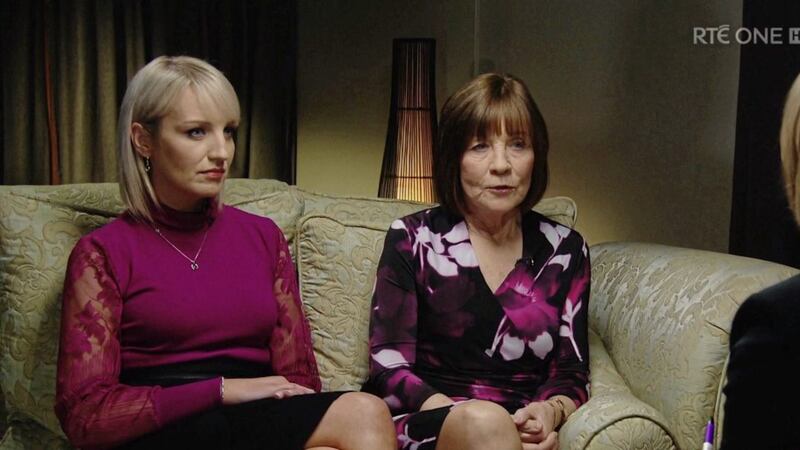THE bravery of Clodagh Hawe’s mother and sister, when they spoke out about the brutal murder of the loving mum and her three sons, should not be underestimated.
For a family who had always been private and reserved to find themselves thrust into the headlines in such unthinkable circumstances is beyond traumatic. As a journalist I am always humbled that people who have had a personal tragedy will speak to me and those like me in order to help others, raise awareness and highlight injustice. For Clodagh’s mother Mary Coll and sister Jacqueline Connolly to speak as openly as they did with RTÉ’s Claire Byrne will have had a massive impact in helping those in abusive and controlling relationships to speak out or seek help.
The signs that Alan Hawe was a controlling man who viewed his family as his property were not at first obvious. But listening to Clodagh’s loved ones, they were there. They say they rarely got to see their sister alone. She stopped socialising when she met Hawe at just 17 years old, a quiet and studious teenager. The relationship was described as “all consuming”.
He joined the two sisters when they went to pick a bridesmaid dress and in a highly unusual move walked his own bride up the aisle rather than allow another relative to take that honour.
That behind his ‘respectable’ veneer lay a man who was addicted to online porn and was potentially about to lose his job in the school he worked as a deputy principal are all thought to have been motivating factors in his killing spree. Hawe was a self-obsessed man, too cowardly to face the consequences of his actions but also refusing to relinquish control over his family, even in death, instead murdering them with an axe and knives. Liam, Niall and Ryan didn’t stand a chance. He showed them no mercy.
To excuse his behaviour, as many did, as being down to mental illness is an insult to those who struggle with depression. The man was a scheming, violent, savage killer. He was not a victim. He does not deserve our sympathy. That should be reserved for his victims and the loved ones they left behind.
The family have called on Garda Commissioner Drew Harris to set up a special investigation unit into killings within families. Mrs Connolly said her family initially got no support from gardaí and were left to find out details about the murders from the media. The Republic’s justice minister Charlie Flanagan has offered to meet the family to discuss their calls for legislative reform and a full inquiry into the case.
On January 1 a number of strands of new legislation were introduced in the south to protect vulnerable women, children and in some cases men who are victims of controlling, abusive relationships. Once again, thanks to a more progressive and understanding society, which has listened to stories like those told by families such as Clodagh’s, things are changing for the better.
It doesn’t even need said that in Northern Ireland we lag way behind both the south and the UK when it comes to protective laws. While public consultations have taken place and behind the scenes civil servants are drawing up legislative proposals, without an executive and a justice minister new laws cannot be passed. Secretary of State Karen Bradley could bring it before Westminster. Northern Ireland could be included in the domestic abuse bill and laws extended to cover here. Until now the British government has resisted legislating in Northern Ireland on key issues and while Brexit is occupying its minds, the safety of vulnerable people here appears not to be high on the list of priorities.
In the absence of legislation there are still changes that can be made – better training for the PSNI dealing with domestic crimes; giving victims a single point of contact so that patterns of offending can be recognised earlier; speeding up the length of time it takes for the prosecution service and the courts to deal with offenders, so there are very real consequences for actions sooner; training of teachers and youth workers to spot signs of children in abusive homes; more cooperation between schools and police so they can be made aware that a pupil may have witnessed violence and therefore steps taken to support them; access to legal aid for those who need protective non-molestation orders, and restrictions on those who abuse family court proceedings; specialist training and monitoring of solicitors who work in this field – lawyers should always defend without fear or favour and guard against becoming facilitators.
All of these changes can happen without legislation and should be implemented regardless of the political vacuum. It may not be ideal but it’s better than what we have in place.








